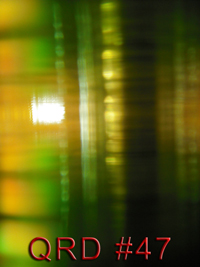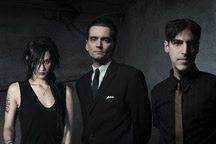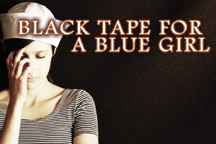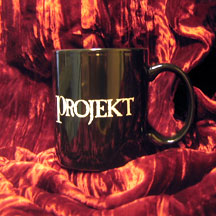









































January 2011

Label: Projekt
City: Brooklyn, NY
Artists Roster: www.projekt.com/store/product-category/artists/
Websites: www.projekt.com
QRD – When & why did you start your label?
Sam – Around August of 1983 I released the first cassette on Projekt. Why? Because there were cool bands I was writing about in my fanzine, Alternative Rhythms, & I wanted people to hear them. So I put out a compilation.
QRD – Where did you get the money to finance your first few releases?
Sam – I worked at Wendy’s. It cost nothing to release a cassette, since I dubbed them at home & made the covers at the local copy place.
QRD – How many releases have you put out?
Sam – By the time this is online, Projekt will be up to 253…. I am designing releases 255-256-257-258 right now.
QRD – How many releases would you like to do a year?
Sam – It seems that I’m doing between 15 & 20.
QRD – How many hours a week do you work on the label & how many would you like to?
Sam – I work less than 40 hours a week. I’d like to work about 20, & work the other 20 on my own music, but it doesn’t turn out that way.
QRD – What are the fun &/or rewarding parts about running a label?
Sam – I really like designing album covers & seeing them go from ideas to reality. I actually really like paying royalties, because I feel like I am shrinking my to-do-list & I like giving my artists the money they deserve. I also really like boxing up CDs. Cutting special-size shipping boxes. I think that most everything is fun, except for the really dull accounting stuff, like doing taxes.
QRD – How have your motivations for having a label changed?
Sam – Well, it was just a hobby at first. & now it is my job. So in that sense, it’s different. But the motivation is still “Oh wow, this music is cool! I want other people to hear it.”
QRD – What do you feel is the biggest waste of your time running the label?
Sam – Chasing distributors to get paid. But I have gotten rid of the ones who don’t pay, so I don’t have much of that problem anymore.
QRD – What are some labels you admire or feel a kinship to?
Sam – Ah, so few labels left. Most of the ones I was friends with are gone. I am friends with Charles at Soleilmoon.
QRD – What other work experiences prepared you to have a label?
Sam – None. I made it all up as I went along.
QRD – What makes you label special & unique?
Sam – I pay all my artists.
QRD – How has your physical location effected your label?
Sam – Our current space has a 600 square foot office & about 1500 square feet of storage. I definitely feel more comfortable here than in the 600 square foot basement of my old house. The space has mentally allowed me to release more music.
QRD – Do you enjoy music as much now as you used to & how has running a label effected how you listen to/hear music?
Sam – I don’t listen to much music, outside of work. Right now I am streaming soma.fm - but honestly, 85% of what I play at home is Steve Roach. Unless my son is around, when it’s Kraftwerk, Bowie, Devo, etc. In the car on the way back from the laundromat, I was playing The Rolling Stones’ Sticky Fingers.
QRD – What’s your demos policy?
Sam – When I see a demo, I scream, “Shea, how did THIS get in here!?!?!” & then we both run around like our pants are on fire. : P I usually only sign new bands that are recommended to me. The hit to miss ratio is really bad on demos that come in the mail.
QRD – How do you find out about new artists for your label?
Sam – Hey, I just answered that. Are you listening? Knock. Knock. There’s a great new French band - Every Silver Lining Has A Cloud - that I am releasing in the spring. They were recommended to me by Doru, a concert promoter in Romania.
QRD – How do most fans find out about your label?
Sam – I don’t really know, anymore.
QRD – What’s been your biggest selling release & why do you think it was?
Sam – The biggest non-compilation release was Black Tape For A Blue Girl’s 1996 album Remnants of a Deeper Purity. Why? Right time, right place. Musically, it is pretty modern minimalism/neoclassical. But “the goth crowd” bought it.
QRD – What release that you’ve done was the most important & special to you personally?
Sam – “Sam, who is your favorite of your children?” Isn’t that question patently unanswerable, without offending somebody?
QRD – What are some things that make you want to work with a band?
Sam – I like their music & they are realistic about what they expect from a release on Projekt. If a band tells me their demo sold 5000 copies, I know that I should not release them.
QRD – What are some things that would make you stop working with a band?
Sam – When they are douches (laughs). I don’t “have to” work with a band, so if they give me too much trouble, they are free to peruse their own path.
QRD – What is the thing all releases on your label have in common?
Sam – The back cover has the Projekt logo on it.
QRD – How involved are you with a band for acting as a producer as far as hearing demo ideas or selecting tracks to be on a release or mixing & mastering?
Sam – I seldom do that. There are a few bands who have asked my advice on track order, etc. In the early 2000s, when CDs sold well enough, I’d go in & master them, usually with my guy Al at Studio Chicago in Chicago. But these days, most bands self-master, or there’s no mastering. I still work with Al on Black Tape For A Blue Girl albums, because he does a fantastic job & it’s my band, so I’ll spend the money.
QRD – How involved do you like to be in the artwork design for a release?
Sam – I am very involved, because that’s one of the things I really enjoy doing. I’ve designed about 85% of the covers on Projekt. The band has the photos & ideas & then I work with them. I think this gives them a quality cover, but doesn’t make them all look generic. That’s one thing I work on with Steve Roach… to keep his covers fresh & different from each other. With 4 albums a year from the same artist, you can’t have them looking like they are cookie cutter covers.
QRD – How long is it from when an artist delivers an album to you until release date & why?
Sam – 4 months. Because that’s the timeline at NAIL, our distributor. If it is mailorder only (which is rare) then it is 4 weeks, because that is the timeline of the pressing plant.
QRD – If a band breaks up between the recording of a release & the release date, how does that effect what you do?
Sam – Oh, that’s horrible. You almost might as well NOT release a CD from a broken up band. I have no scientific evidence, but I think the audience member says to themselves, “Wow, if you didn’t like yourself enough to stay together, why should I like you enough to spend money on your album?”
QRD – What do you wish bands on your label would do?
Sam – Make more music!!! They’re like me, they have day jobs (mine is Projekt). If we were all on a government grant, we’d be making new albums much more often.
QRD – What’s a record you‚d like to put out that you’ll never be able to?
Sam – Many of the albums in Marc Almond’s career. The new one - Variete - is amazing!
QRD – If you really like a band, but aren’t sure you could sell many copies of their record; what do you do?
Sam – Put out their album, with low expectations, & see what happens…. I absolutely love Disciple from Mark Seelig. It is not a traditional Projekt album, in some ways, because it has an Indian/spiritual/meditative side. But I put it out because it’s one that I listen to a lot on my own.
QRD – How is financing of a release split between artists & the label?
Sam – I pay for it all.
QRD – How do you split profits from a release between artists & your label?
Sam – I pay a royalty for every unit sold. For Digital, I split the money 50/50.
QRD – Do you have written contracts with your bands or handshake deals?
Sam – Written contracts. It’s the best way to stay friends.
QRD – Do you take a cut of a band’s publishing?
Sam – Not really. I publish some bands through my company, Seireenien Music BMI. In which case, I take a small administration fee.
QRD – How important is it to you to have touring acts on your roster & what do you do to encourage it?
Sam – I think touring can be good for bands. Voltaire is always out playing shows. But most of the bands don’t tour & that’s ok.
QRD – Do you handle promotions in house or hire out & why?
Sam – I have never once had a publicist be worth what I paid them. So I do it in house.
QRD – How do you maintain contact with your fanbase?
Sam – Facebook, my elist, see them at shows.
QRD – Do you have intern & street team programs & if so, how do they operate?
Sam – No.
QRD – How big of a staff do you have & how big of one do you need?
Sam – There are three people, but our hours are under 60 hours a week, in total….
QRD – What do you do to build relationships with record stores?
Sam – Record what’s?
QRD – What do you do to build relationships with radio stations?
Sam – Radio? They play music on the radio?
QRD – What do you do to build relationships with magazines & websites?
Sam – Magazines? There are no magazines left. Websites? They ask for a promo & I send it to them.
QRD – What do you do to build relationships with bloggers?
Sam – Blog-what?
QRD – Do you view advertisements as a way to generate interest & revenue or more as a way to financially support magazines & websites you like?
Sam – I view advertisement as a good way to throw away my money. Just like my experience with publicists, advertising is a total waste of money. The only ads to ever be effective were back in the mid-80s: 1” boxes in the classified section of Spin & Sassy.
QRD – What is the job of your distributors?
Sam – Sell my records to Amazon & the One Stops. About 85% of what they sell are to the top 3 or 4 vendors. Really, the distributor is my collection agency. Now, that said, I really like the people at NAIL. It’s just that chain stores are no longer selling Projekt & there aren’t many indie stores left.
QRD – How do you decide how big the initial pressing of a release should be?
Sam – It’s 1000 units, unless it’s Steve Roach, Voltaire or Black Tape For A Blue Girl, then it’s more than 1000.
QRD – What percentage of a pressing do you use for promotions?
Sam – Between 30 - 60 copies. There really aren’t many places left that are worth a promo.
QRD – Do you sell merchandise other than the music (t-shirts, etc.)?
Sam – Some shirts. Some coffee mugs.
QRD – Do you sell music that is not on your label?
Sam – Yes. It used to be a much bigger part of the total income at our webstore, but it has been dropping off dramatically in the last couple of years.
QRD – How has running a label effected your own artistic career?
Sam – I think that any job detracts from having an artistic career. I say that because I was going to say that running a label has detracted from having time to work on my own music. But any job would do that.
QRD – Ideally, would you release your own material?
Sam – I do.
QRD – What do you do to try to build a sense of community within your roster?
Sam – We stay in touch by email, but there have been many bands that I never even met in person, such as O Yuki Conjugate….
QRD – What’s your most common conversation with bands as far as balancing artistic integrity & financial viability?
Sam – I don’t know if I ask them to balance those two things. I’m realistic that most Projekt releases will sell between 500 - 1000 copies. So what difference would it make if I said, “write catchy songs.” I think the only place I really try to give direction is with their album covers. I think it’s not much of a compromise to make a BETTER album cover… but they can always say “No,” & sometimes they do. & then I step back & let them do what they want, because it’s their album.
QRD – How often do you look at your “return on investment” & adjust your business model?
Sam – Ugh. If I thought like a businessman, I’d have changed my line of work a long time ago.
QRD – Do you worry about search engine optimization & website traffic?
Sam – Blink. Blink. Did you just say something?
QRD – What have you done to cut costs over the years?
Sam – Stopped advertising. Stopped mailing out printed catalogs. Cut down the number of employees. There was a time in the early 00s, when Projekt was $200,000 in debt. But I paid that off & have since ran up a bit of new debt, but nothing dramatic.
QRD – Do you think the album format is dead?
Sam – No.
QRD – Do you think the return of vinyl & cassettes is a fad?
Sam – Cassettes? Really? I don’t see much interest in vinyl in my genre.
QRD – Is it important to have physical releases over digital ones or does it not matter?
Sam – Yes. It seems that physical is the way to get a bit of press & awareness for a release. Digital-only releases don’t create buzz or awareness for Projekt. So they don’t do very well.
QRD – What do you think of ultra-limited runs of releases (less than 100 discs)?
Sam – I guess there might be a time & place for that? But not for me… because we can sell more than that through our webstore.
QRD – What do you think of “print on demand” discs?
Sam – Meh!
QRD – How much content do you feel should be available free to fans?
Sam – A song or two.
QRD – What do you do about people distributing your music without financial compensation (piracy & file trading)?
Sam – I spend a lot of time ranting about this… you can read that here: http://projekt.com/abuse.asp
QRD – What’s something you see other labels do that you think of as borderline unethical?
Sam – (1) Not paying their artists. (2) Charging back the cost of production to their artists. (3) Uploading digital download versions of compilations with tracks from Projekt bands & not paying us for those sales.
QRD – What changes in things would cause you to stop your label?
Sam – My death. Well, even then, Shea knows she has permission to keep it running, as long as Sasha gets a cut of the profits.
QRD – What would you suggest to someone starting a label today?
Sam – Don’t do it. That has been my suggestion, for years.
QRD – Where do you think money is currently most available to labels/musicians & where in the future?
Sam – The best way to make money is licensing to movies, commercials, games, etc.
QRD – Why do you think labels are still important to artists?
Sam – Because most artists are artists first, businesspeople about seventh. It helps them to have somebody doing all this tedious shit for them. That’s my job! (laughs)
QRD – Music has had different hotspots on the internet over the years (newsgroups, MP3.com, MySpace, LastFM), but with MySpace’s decline, what do you see as the place where “normal” people go to find out about & get excited by new music?
Sam – Don’t know. Word of mouth? Pandora? Soma.fm ?
QRD – In 20 years what do you think/hope your label will be known/remembered for?
Sam – Well, Projekt will still be releasing music in 20 years, so it will be known for the amazing classic releases… & for whomever the new bands are, at that point in time.
QRD – Anything else?
Sam – This was far less annoying than I expected. : ) Thanks for asking me, Brian.
Other QRD articles with
Sam Rosenthal:
Father's
Day Interview with Sam Rosenthal of Black Tape for a Blue Girl & Projekt
Records (May 2007)
i
heart FX - Sam Rosenthal (black tape for a blue girl) (1998)







